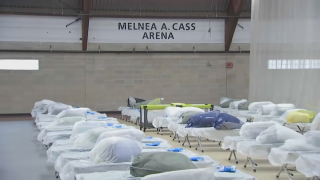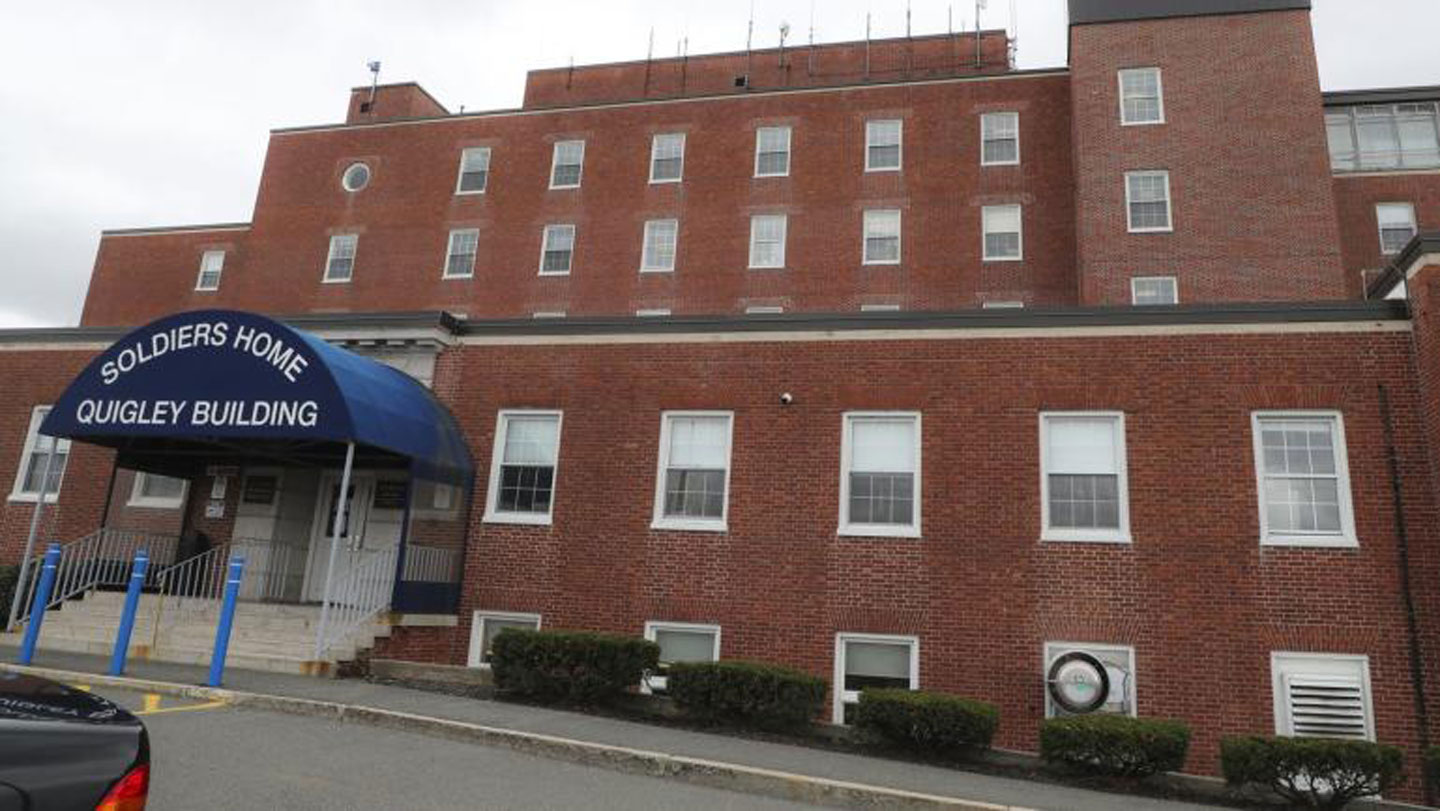
As chairman of the Massachusetts House Ways and Means Committee, Rep. Aaron Michlewitz sits in the catbird seat of budget and policy development on Beacon Hill.
The Boston Democrat offered a glimpse Monday afternoon at the various balls he is trying to keep in the air simultaneously as the 2023-2024 legislative session gets into crunch time ahead of the July 31 end of formal business: emergency shelter policy, the fiscal 2025 budget, Gov. Maura Healey's housing bond and policy bill, the governor's economic development bill, and more.
WATCH ANYTIME FOR FREE
>Stream NBC10 Boston news for free, 24/7, wherever you are. |
Talking with the Black Economic Council of Massachusetts during an event focused on prioritizing equitable economic development, Michlewitz provided updates on the House's plans for the remainder of the session and shared his own thoughts on some of the leading issues of the day.
"Massachusetts is also seeing a migrant crisis like no other state in the nation, one that has put our emergency family shelter system and our budget at a breaking point at the moment," Michlewitz said. "And although our fiscal outlook is still pretty strong, and we built up our reserves to record highs, the budget before us today that we're dealing with is going to be one of the most challenging I've had to deal with as the chair. As we see declining revenues over the last couple of months here, the spending pressures on the commonwealth only continue to climb."
Get updates on what's happening in Boston to your inbox. Sign up for our >News Headlines newsletter.
Michlewitz and House Speaker Ronald Mariano will unveil the House's budget plan the second week of April, and the chairman said it's been difficult to develop this spending plan because he's not exactly sure what's led to state tax collections running $186 million behind last year and $275 million behind the year-end estimate that has already been slashed by $1 billion.
"It's my sixth budget, going through this. And besides COVID, this is probably the most difficult one. And the COVID budget was kind of easy, in a sense, because you could just point to COVID and blame COVID and say, 'it's COVID and we can't do that right now.' We can't really do that right now," Michlewitz said. "With the declining revenues, we don't have an exact reason exactly why our revenues are declining the way they have been. And it's making it, certainly, for a challenging cycle. But we'll get through it, we're working through it, we have the resources to do so."
Among the budget measures Michlewitz previewed were help for school districts that are "still struggling to cope with a declining fiscal picture" despite the 2019 K-12 funding reform law and the continuation of universal school meals. He said that he's also aiming to preserve the state's recently-upgraded bond rating, since that will allow the state to borrow money for other priorities at a lower cost.
"A lot of these bills that we're talking about -- whether it's the housing bond bill, or the economic development bond bill -- they're gonna require us to spend some capital through the bond market. And for us to do that, we have to have a strong rating to accomplish those goals that we want to out of those two bond bills," he said. "If we don't do that, we may hit some challenges, we may not reach our entire goals, particularly around housing."
And housing, the chairman said, is number one "in terms of priorities that we all kind of share" in the Legislature. Though Healey filed a housing bond and policy bill in the fall, Michlewitz said the final product "isn't going to be a House initiative, it's not gonna be a Senate initiative, it's going to be all of us."
"Now, we may have different pieces of the policy that we may have some disagreements on as we get into the nitty gritty of the bill. But, certainly, the idea that we need to pass something significant that will put us put in a strong investment standpoint, of housing money, putting capital out on the street related to housing, but also creating some policies that will allow that to flourish and grow … that's one, definitely, thing that we are agreeing upon."
Sign up for our Breaking newsletter to get the most urgent news stories in your inbox.
Mariano signaled last week that the House may include in its housing bill the authority for cities and towns to impose transfer taxes on real estate transactions above a given dollar amount as a way of generating revenue for affordable housing initiatives. Michlewitz went into detail Monday on the House's internal debate on the topic.
"One of the challenges with that discussion is that every community has a little different take on what would work. You look at Boston and how Boston operates, and how many properties would be over a million [dollars] or $2 million, or whatever the threshold would be, versus a smaller city or town which isn't going to accumulate the same amount of money. Or, maybe a smaller town that's wealthy, that's going to accumulate a lot of money that may not be able to put all that money into into building affordable housing, because they may have some zoning issues related to how small their community is," he said.
Michlewitz added, "These are all things that we're going to have to weigh … you're trying to put a lot of round pegs in the square holes in some respects. And trying to create that flexibility, I think is something that we're working through."
And with most of his time occupied by work on the budget and the housing bill, Michlewitz said he hasn't had a good chance yet to sink his teeth into the $3.5 billion economic development bill that Healey filed at the start of the month. But he did draw a line between one part of the bill -- a $1 billion infusion for the state's life sciences sector -- and the housing crisis the state is working to address.
"One of the reasons why we're in a housing crisis is because we had such a large growth of population in 2010 to 2020, and didn't have the production of housing at the same rate that we had the population growth, which has obviously created a greater demand and less supply," he said. "And one of the reasons why we had that population growth is because of the life sciences initiatives that grew in the commonwealth through the last 15-20 years, and brought a lot of economic development to us, brought a lot of population to us, brought a lot of energy to the commonwealth."
The chairman added, "So we know how important this is to our economy. We know how important it is to the continued growth of our economy. And we're going to certainly prioritize it as we go forward."
Michlewitz, who hails from the North End of Boston, also shared his view of the dispute playing out between the state and Milton over the town's rejection of a zoning plan that would have complied with the MBTA Communities Act. That law requires communities served by or near MBTA service to adopt zoning that allows multifamily housing by right in certain areas, and the state has sued Milton over its non-compliance with the law.
Michlewitz said Monday that he thinks "the greatest challenge in our housing issues right now and the biggest disease of it is NIMBYism," he said referring to the "not in my backyard" stance.
"It's not necessarily policies, it's people prefer to not have density near them, involved in them or around their community. And I think that trying to balance that discussion, I think, has been one of the biggest challenges that you've seen recently," he said. "And I don't think that's anything different to the rest of the country, but certainly, it's, it's when we have a limited amount of space here in the commonwealth -- we are one of the oldest infrastructures in the country -- I think that that's probably one of the biggest challenges that we're facing, and I think that that's taken full center stage in relation to the Milton debate and discussion that's been going on right now."
He added, "But it's not just Milton, there's other communities that are having a hard time grappling with this conversation directly. And there's different nuances to each of them and you can't put one in a one-size-fits-all kind of box. Because Milton has their gripes about this policy, and some of them aren't the craziest discussions in the world. And I think it resonated amongst the population in Milton during that vote. But there's other committees that are dealing with this as well."
o which are well beyond our authority,” Tarr said. “We find ourselves here without the resources, without the authority to solve what is, in essence, a federal problem, struggling with what will necessarily be imperfect solutions.”



